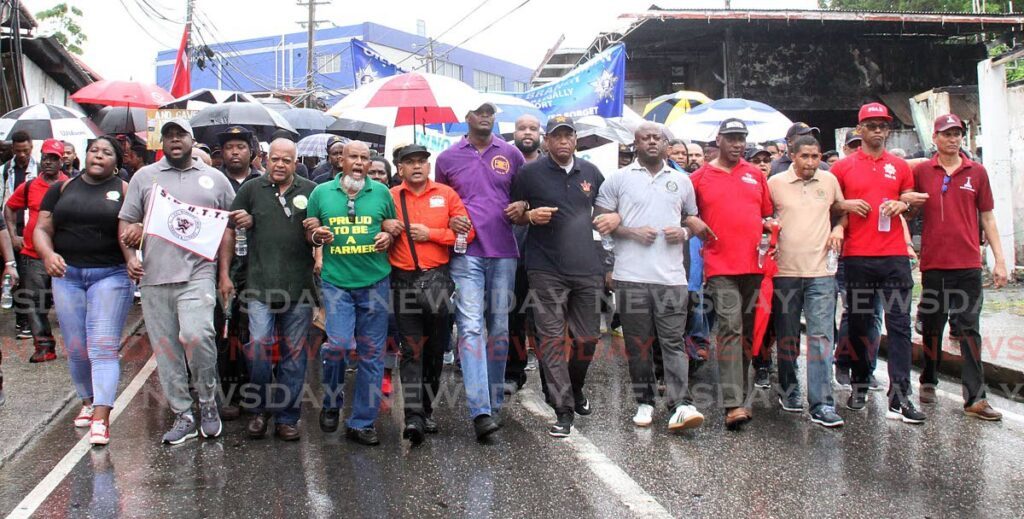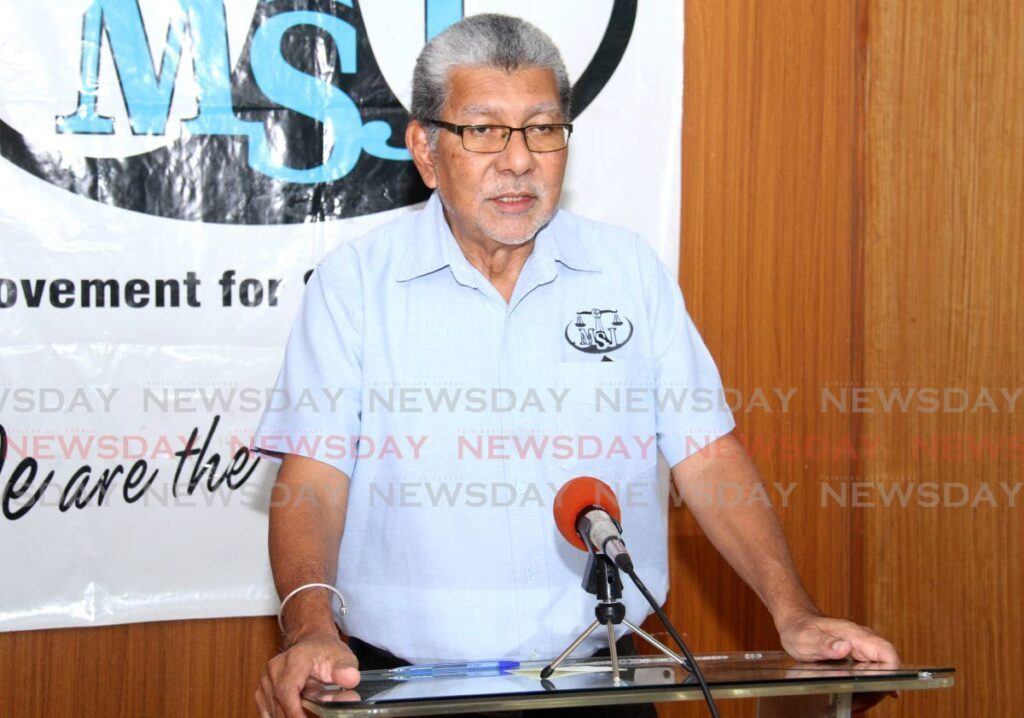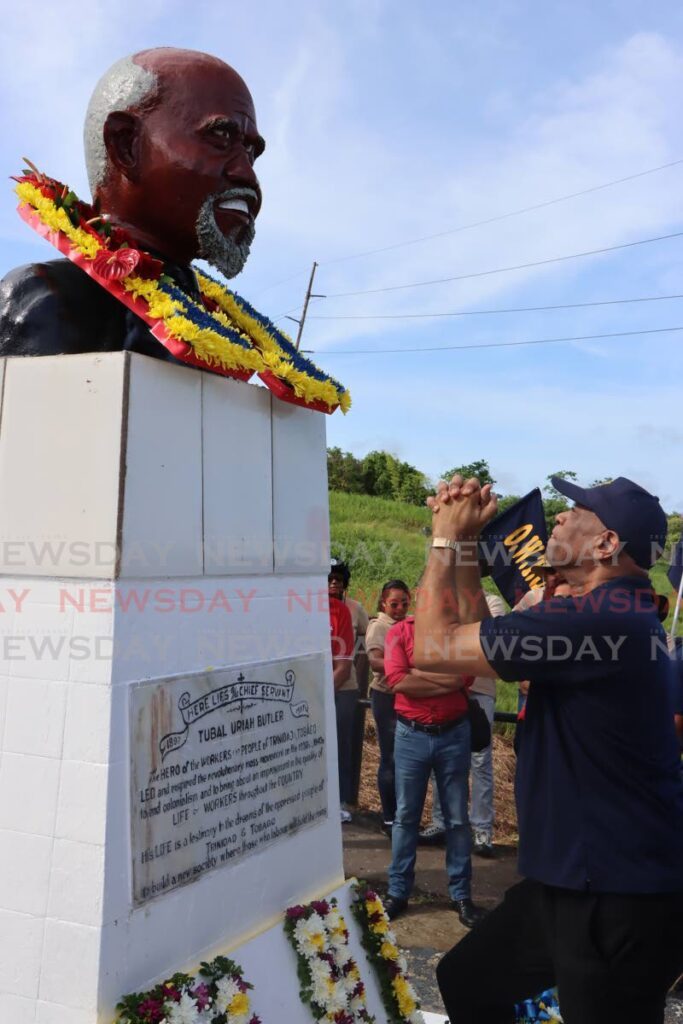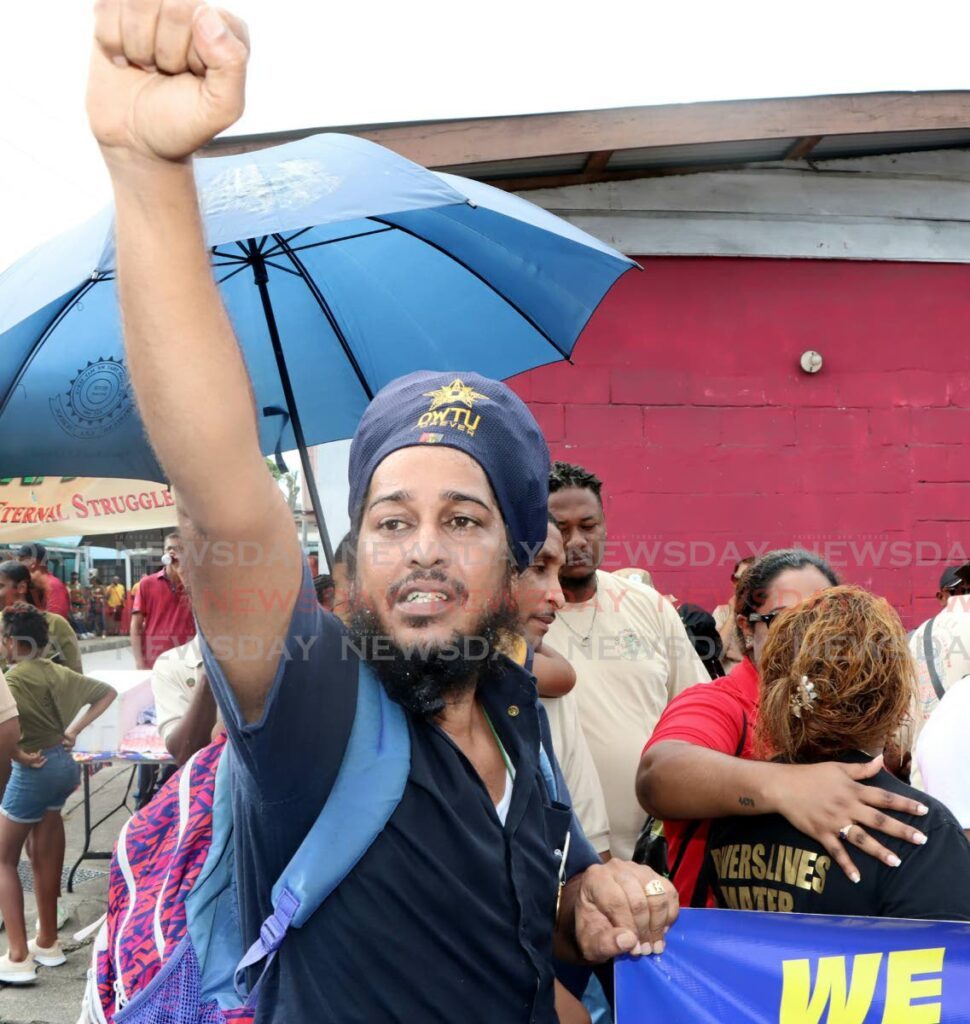What labour looks like today

Trinidad and Tobago’s trade, labour and political dynamics have evolved in the 51 years since Labour Day was first observed with a national holiday.
But some issues which led to the proliferation of leaders and groups dedicated to the redress and well-being of the working class, continue to draw the attention of labour leaders today.
Labour Day is celebrated on June 19 in remembrance of the Butler Oilfield Riots, which occurred on that same day in 1937.
Riots began in Fyzabad after police attempted to arrest Grenada-born Tubal Uriah "Buzz" Butler, who organised a peaceful meeting of overworked and underpaid oilfield workers.
The attempted arrest led to violent clashes between workers and the police. Workers attacked oil installations, police stations and symbols of colonial authority, which was viewed as indifferent to the plight of workers.
The global economic downturn of the 1930s, the Great Depression, severely affected Trinidad and Tobago, contributing to high unemployment, poor working conditions and low wages.
Agriculture was Trinidad and Tobago’s economic driver but the oil industry was rapidly growing, becoming one of the largest employers.
Common among the two sectors, workers faced harsh conditions, long hours, meagre pay, poor healthcare and housing.
The riots spread from San Fernando to Port of Spain, involving workers from various industries, including railway, sugar, cocoa and others that have ceased or barely exist.
The colonial government declared a state of emergency and deployed police and military forces to suppress the riots.
Numerous workers were arrested, and several were killed or injured in the clashes.
Butler remains a national hero, honoured with a highway and statue as reminders of his defining role in the labour movement.
His and his peers’ efforts haven’t been in vain. By any measure, workers in the services, construction manufacturing and energy sectors experience better working conditions today.

Since TT gained independence in 1961, trade unions and the wider society have worked with the government to introduce legislation to protect workers.
These include the Industrial Relations Act (1972), an act which governs the relationship between employers and employees, trade unions and employer organisations, and one that labour leaders say needs some revisions.
The act established the Industrial Court to adjudicate industrial disputes and protect workers' rights to join and form trade unions.
Still, “Labour legislation needs amendments,” said David Abdulah, economist and well-known leader of the Movement For Social Justice (MSJ), a political party rooted in the trade union movement.
“Amendments are needed to ensure that we have an easier and quicker process of unions being able to represent workers.
“The process of recognition is horrendously long and tedious and frustrates the rights of workers to join a trade union of their choice.”
The Equal Opportunity Act (2000) protects workers from discrimination in employment (and other areas) based on race, ethnicity, religion, sex, marital status, origin and disability.
The Maternity Protection Act (1998) provides for maternity leave and protection for pregnant workers against dismissal due to pregnancy, an entitlement to 13 weeks of maternity leave, and the right to resume work in the same position after maternity leave, among other protections.
The Retrenchment and Severance Benefits Act (1985) and the National Insurance Act (1971) are other landmark legislation.
The national minimum wage is a relatively recent feature of TT law, introduced in 1998 at $7 per hour.
It increased to $8 in 2003 and $9 two years later. The wage increased three times before its latest raise, effective at the start of this year, moved it from $17.50 to $20.50 per hour.“We need to move away from the concept of a minimum wage and think about it as a living wage,” Abdulah told Business Day.
Abdulah sat on a labour and social security sub-committee in the early 2000s, which sought to calculate a living wage, taking into account food, rent, transportation and other regular expenses that would allow for an acceptable standard of living.
Social programmes or “safety nets” are critical to support and empower people.
“We need to start to move people out of poverty, household by household. And there is no systematic approach to doing that. You can’t simply say you’re going to have all these grants. It is necessary but we need to train a tonne of social workers to visit people in their homes, understanding the real circumstances.”

He said it is important for people to identify their talents or help them to develop and monetise skills.
The labour force has evolved considerably over the decades, reflecting broader economic, social and political transformations.
It has grown steadily over the decades, with increasing female participation in various sectors, and more opportunities for vocational and tertiary education, contributing to a growing skilled labour force.
As of December 2023, the last published quarter of Central Bank data, 27,900 people are employed in agriculture, 65,100 in construction, 12,100 in the petroleum and gas sector, 31,700 in transport and storage, 391,400 employed in other sectors. The total labour force was 602,000.
The unemployment rate was 4.1 per cent at the end of the same quarter, up from 3.2 and 3.7 per cent in September and June 2023, respectively.
A growing number of private sector workers are doing their jobs from home. Many companies had no choice but to shut down unless they implemented remote work arrangements when the covid19 pandemic took full swing in 2020, forcing public health restrictions on all non-essential businesses.
The Ministry of Digital Transformation launched a few years before, was tasked not only with digitising decades-old government records and streamlining government services online but also ensuring their protection.The Ministry of Public Administration is currently developing a work-from-home policy for the public service, which is expected to be used by the private sector.
When asked about the policy in January, Minister of Public Administration Allyson West warned against the private sector waiting for the government to make the first move.
"Our work-from-home policy does not dictate what the private sector does," she said.
"The work-from-home policy that is being developed is for the public service or the civil service, and therefore the entire private sector, which contributes significantly to the pileup of traffic in TT, is at liberty, while we develop our policy for government purposes, to do what it decides is appropriate for the private sector.”

She said she neither sought to encourage nor discourage the private sector on the merits of working remotely but wanted to avoid the “private sector seeking to give the impression that everything is dependent on the government's policy.
“If they choose to wait on us, that's up to them, but I don't want them to give the public the impression,” one she said she got after reading a newspaper article.
West said a contract for developing the remote-work policy for the public service had been recently awarded, adding that the government hopes to have it completed and a decision made on its implementation within the fiscal year.
“Quite a bit of work” was needed between then and the launch of the policy, if it is launched, she said, “because we will only agree to the introduction of a remote-work policy if we are comfortable it would not negatively impact the productivity of the service."
Until then, no laws dictate civil or private employment policy.Abdulah found technology and AI have made some jobs obsolete but still don’t account for most job losses.
“It’s more a result of the neoliberal economic policies.
“For example, with trade liberalisation we lost jobs as manufacturing stopped.”
TT’s vibrant garment manufacturing industry, he said, disappeared once people began to import from China.
He also referred to the closure of a tyre manufacturing plant in Point Fortin that shut its doors in the mid-90s and more recently, Unilever, one of the oldest food processors in TT.
“Trade liberalisation has affected us significantly. You then have multinational companies taking (global) operational decisions like Arcelor Mittal (steel manufacturing) that closed down and set up a plant somewhere else.”
Abdulah maintains the government made the wrong decision to close the Petrotrin refinery and the sugar industry years before.
“Those things are not due to technology but policy decisions and globalisation.”

He added that technology has replaced workers like tellers, despite pushback from a significant portion of the population that prefers to handle cash and conduct transactions inside the bank.
Abdulah said the country can still chart its own economic course.
“We have a competitive advantage in the creative sector,” he said, an area deserving of public attention and investment.
“Manufacturing steelpan through to film (production) – we ought to have months of theatre where dramatic presentations, drawing people to TT like they come from Carnival. So we should have productions for six, seven months every year.”
Abdulah supports developing East Port of Spain as a cultural heritage site, with performance tents and shops, creating an attraction for locals and cruise ship passengers.
He said Fyzabad and nearby communities would benefit from a labour museum, an oil museum, tours of the pitch lake and similar activities in south Trinidad.
Agriculture remains a critical component of a diverse economy, he said.
“It’s critical because we have to cut the food import bill. The cottage industries that have mushroomed around food processing, whether it’s wines or jams or preservatives. We have to find ways and means of strengthening it from simply a kitchen operation to larger manufacturing operations, employing people.”
He said the country needs to focus on the “macroeconomic framework that would address policy matters of creating sustainable employment.”
He said the private sector and public service must move away from contract employment.
“Permanent employment provides security for young workers. So a young worker can then see him or herself having a future in TT, being able to go to the bank or credit union and buy a home and have a stake.
“A lot of people do not have a stake in the country's future because they don’t have a security. So they either migrate if they can or those who don’t see themselves having a future may engage in crime and violence.”

Also important for the future of labour in TT are healthy, active unions, Abdulah said.
Earlier this month, Abdulah raised concern about the growing number of non-unionised workers across sectors.
Complaining that only 25 per cent of the labour force is currently unionised, compared to 65-70 per cent when he joined the trade union movement in 1977, Abdulah and the Oilfield Workers Trade Union launched an awareness campaign, encouraging people to join trade unions.
"It is not peculiar to TT. This is a global thing, (a result of) neoliberal, capitalist economic policies, designed to weaken the trade union movement and weaken workers' power, to enable capital to accumulate more and more wealth for the one per cent.
"The drive to get rid of unions,” he said, “has resulted in more inequality. Those societies (with) high rates of unionisation tend to have less income inequality.”

Comments
"What labour looks like today"